By Jake Cordero
In this installment of the Austin Séance blog I delve into the issue of dreams, their interpretations, and a category of occult books known as dream books. These are books that include descriptions of various common dreams, as well as guides for interpreting them. I’ll explain a bit about their counter-intuitive history in America and also shine the spotlight on one dream book in particular, “The Missing Key to Success, Health and Happiness” by the fascinating Benjamin Rucker.
I’ve turned to a number of sources for this installment, but most notably the book Occult America by Mitch Horowitz; and Playing the Numbers by historians Shane White, Stephen Garton, Stephen Robertson and Graham White. My own library also includes a number of dream books and I have found manuscripts online going back at least three centuries. I also possess a copy of Rucker’s book, although admittedly it’s a cheap reprint.
BENJAMIN RUCKER — PROFESSOR BLACK HERMAN
A contemporary of Harry Houdini, Benjamin Rucker made a name for himself during the 1920s and 1930s as arguably the nation’s leading African American touring magician. But despite his great success as an entertainer, to describe Rucker only as a magician does disservice to his legacy. He was probably even better known in New York’s Harlem neighborhood as a mystic, root healer and bon vivant. During his heyday he attracted thousands of followers to his townhouse where he dispensed hoodoo remedies and protection spells. He also hosted regular weekly gatherings of Harlem artists and writers.

Yes, Rucker certainly performed stage magic. And yes, he was almost certainly a part-time charlatan. But to his loyal fans and supporters — to those to whom he delivered satchels of powdered herbs, John the Conquerer root, and instructions for keeping wayward husbands in line — Rucker also was Professor Black Herman, the great African-style spiritualist. His fame reached its peak during the Harlem Renaissance — that remarkable cultural flowering between World War I and the Great Depression — and he was then regarded as one of Harlem’s most colorful figures.
Rucker’s Missing Key to Success, published in 1925, is both a guidebook and memoir. Pamphlet sized and probably ghost written by occult author Henri Gamache, the book includes three discrete sections, interspersed photographs and is generally presented in an imposing third-person, almost regal voice. The Missing Key is among a number of similar dream books then common in Harlem, but now next to impossible to find. These include The Black Cat Dream Book, Policy Pete’s Dream Book, Uriah Kong’s H.P. Dream Book and Aunt Sally’s Policy Players Dream Book.
You’re probably asking why the deluge of dream books in Harlem during the 1920s? And why so many titles referencing the word “policy”? Patience, friend. I’ll get to those questions in due course.
 DREAMS, NUMBERS and GAMBLING
DREAMS, NUMBERS and GAMBLING
The first section of Rucker’s Missing Key includes a biographical outline of what he claims had been his life’s experiences. This section is fascinating in its own right, but not because of the literal truthfulness of the content — on that score it fails spectacularly. Rather it’s the colorful and outrageous myth-making that Rucker employs here, his descriptions of Zulu tribes and fighting cannibals. This first section possesses a folkloric feel, one in which Professor Black Herman assumes the central role of an arch-typical trickster who outwits malevolent forces.
The second section includes descriptions of various magic tricks. This is mostly kids’ stuff, although Herman can’t help but to gussy up the text to make the tricks seem more consequential. Rucker assumes that same imposing voice in this section, transferring his own ponderous sense of gravitas to what otherwise would be mundane instructions for disappearing coins. “If magicians were needed in the days of Moses and Pharaoh, they are needed in these days and at this time,” Rucker grandly proclaims. “If you only knew the necessity of a magician, you would not speak evil of Herman or any true magician.”
However, it’s the third and final section of Missing Key to Success that allows us to clearly categorize this book with other bona fide dream books of that era. Entitled “The Mysteries of Astrology,” the third section is where one finds Rucker’s long, descriptive list of dreams, more than 200 in all. As with other dream books, Professor Black Herman’s Missing Key to Success briefly describes common dreams, includes a predictive interpretation for each — portents of money, sickness, luck, that sort of thing — and also includes for each dream a series of discrete numerical digits.

Here’s the short interpretation I found for an “ants” dream in Rucker’s book, on page 77.
“To dream that ants are crawling over you is a sure sign that money is coming to you — 9-00”
Note especially the numerical part of the interpretation “— 9-00.” This may look like the hours of a clock, but in actuality these numbers were set there to assist Harlem residents as they engaged in an informal lottery system known as policy. An early pre-cursor to modern-day state lotteries, policy employed numbers derived from daily reports produced by the New York Clearing House, a lower-Manhattan financial institution. Numbers runners collected day-ahead bets from Harlem residents, and then paid 1,000-to-one to anyone lucky enough to predict the correct sequence.
In their book Playing The Numbers, historians Shane White, Stephen Garton, Stephen Robertson and Graham White explain that policy was more than a mere Harlem Renaissance craze. During the 1920s and 1930s this informal lottery system fueled a sizable portion of the neighborhood’s economy, with numbers runners selling millions of dollars in tickets each year, and housewives, porters and stevedores betting dimes and dollars for potentially big payoffs. So-called “policy shops” popped up throughout Harlem, and, as the historians explained, each one would reliably stock any number of dream books, including Rucker’s Missing Key. Harlem residents would consider their own dreams, consult the books, and place their bets.
“Short and cheap, [dream books] provided a guide for interpreting dreams and converting them into numbers that could be backed,” wrote the Playing The Numbers historians. “Policy and dream books certainly had [European] origins, but African New Yorkers seized on these practices, transformed them, and made them an important part of the urban black culture they were beginning to forge on the city streets in the early decades of their freedom.”
“Right from the start, astute observers discerned that there was something distinctive about the ways in which many [Harlem residents] approached the business of betting on policy,” the historians continue. “Hitting a number was considered less a matter of luck than a matter of fate or destiny; hence the importance of dreams, and their interpretations, in each person’s effort to divine the correct numbers on which to bet.”
Policy began as a Harlem invention and institution, and one exclusively controlled by black mobsters like the colorful Madame Stephanie St. Clair and Bumpy Johnson. Eventually, however, policy spread to other parts of the city and beyond, especially after white mobsters like Lucky Luciano took control. Now policy is remembered by its more famous name: the numbers racket.
Rucker’s book contains 60 pages of dream interpretations, and includes instructions for combining the interpretations for different dreams to derive long series of digits. His book would have been indispensable to policy players.
Here are a few of his dream interpretations, selected at random:
Apples — To pluck them from the tree means that you will be persecuted. To eat them means happiness; to pick them from the ground seems to show that you quarrel — 24-6.
Assassin — To dream that you are being assassinated indicates much success in business — 2-00.
Climbing — If you climb a tree, you will rise to honor; if a mountain, many difficulties will confront you — 42-6.
Ghosts — To dream you see a ghost clad in white is an omen of good fortune — 07-7.
Professor Black Herman died on April 17, 1934, while on tour in Louisville, Kentucky. In an obituary, The New York Age, a leading African American newspaper, described him as one of Harlem’s most colorful characters — a magician, seer, herb specialist and fortune teller; a man who, among his followers, “had risen to the standing of god whom they expect to rise out of his grave.”
No word whether Professor Black Herman ever did. He’s interred in New York’s Woodlawn Cemetery, reportedly in an unmarked plot.

The Austin Séance
Welcome to The Austin Séance merch page. Please notice that shipping charges vary, with less expensive shipping for the talking boards and books that we handle ourselves in Austin. The Austin Séance re-invests 100 percent of net proceeds from merchandise to pay guest writers and artists.
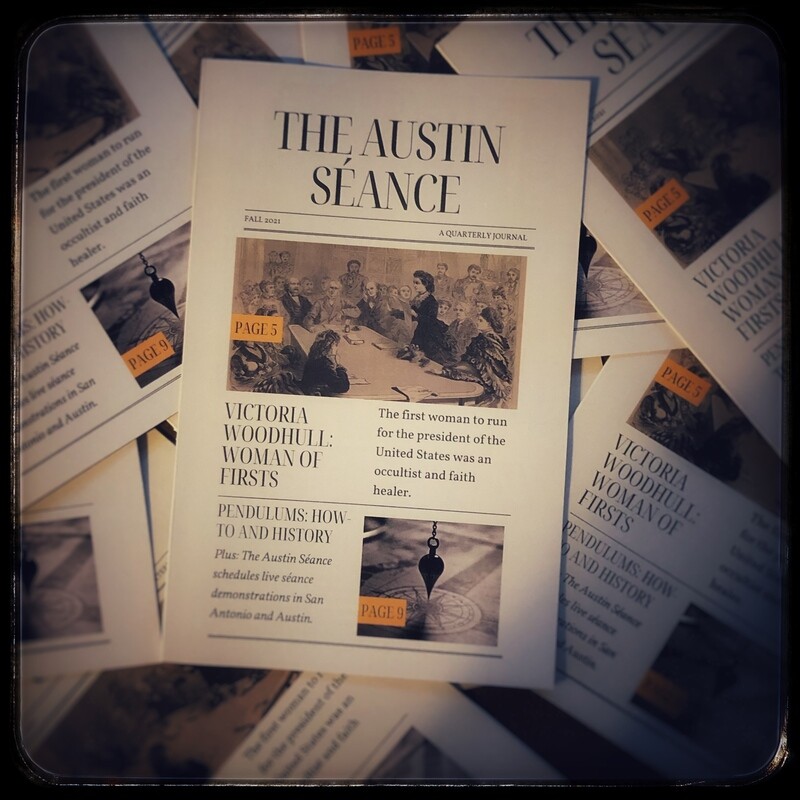
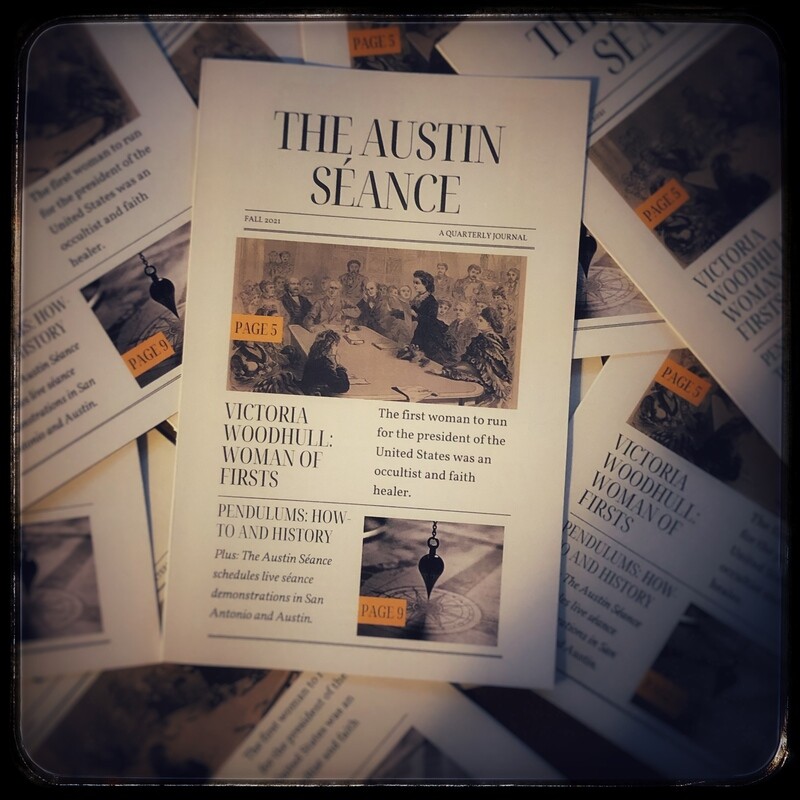
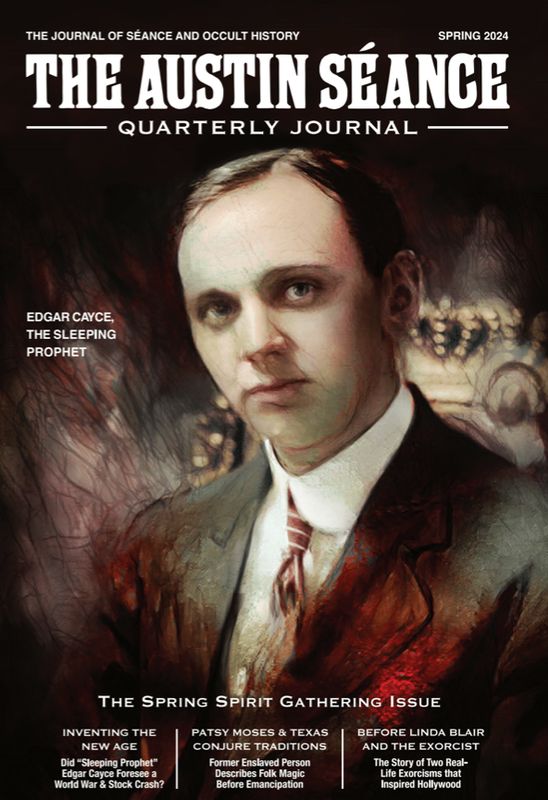
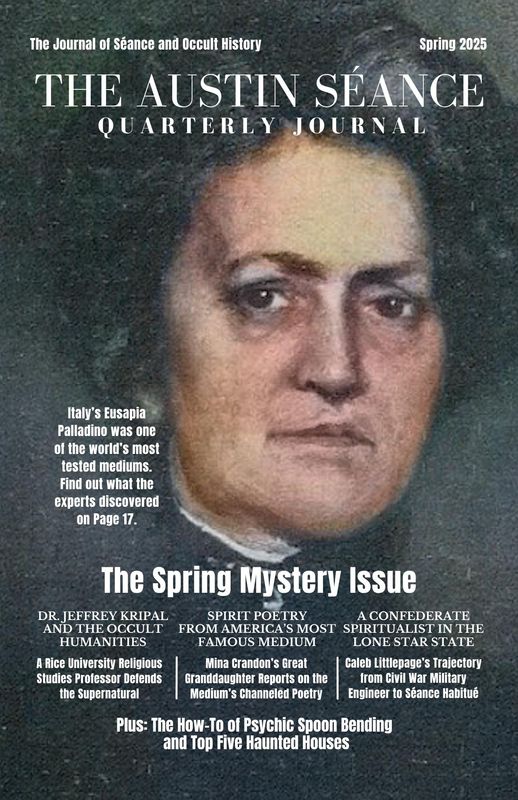
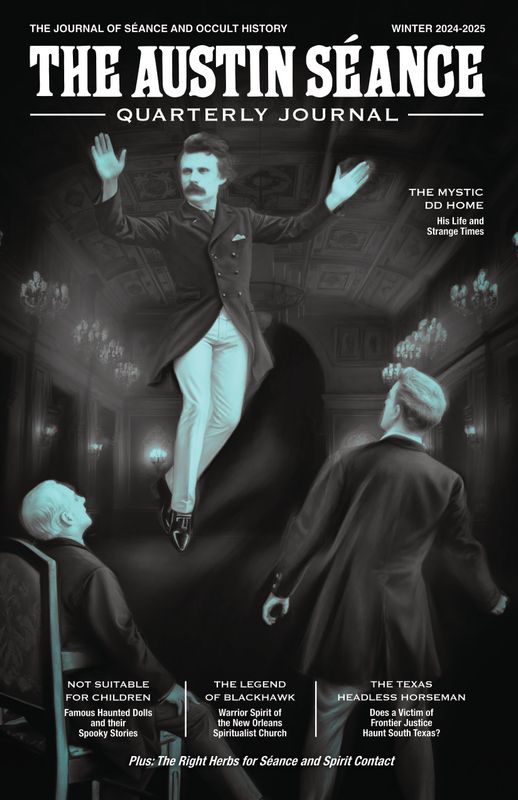
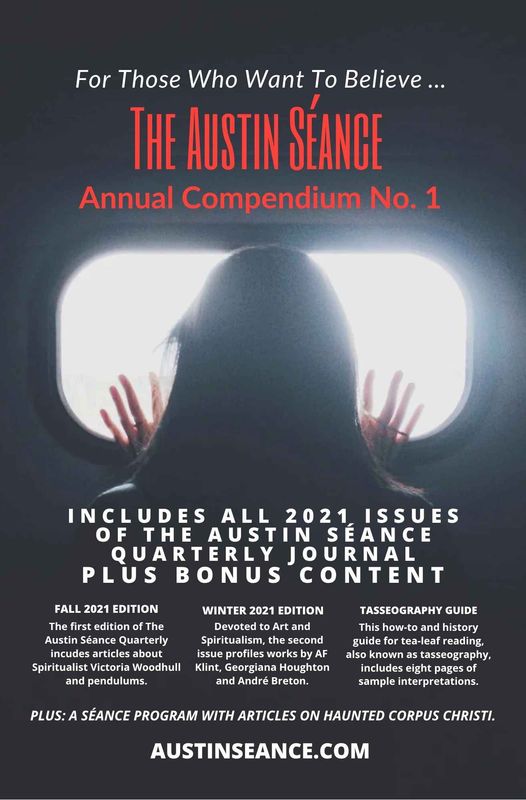
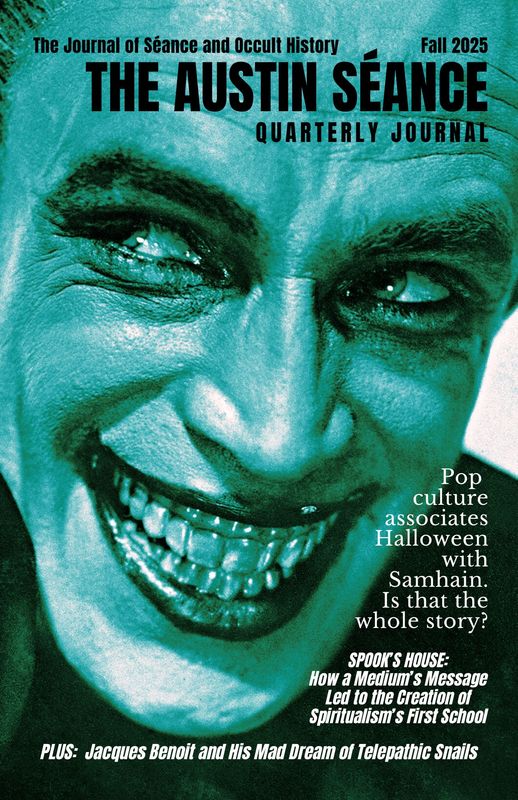
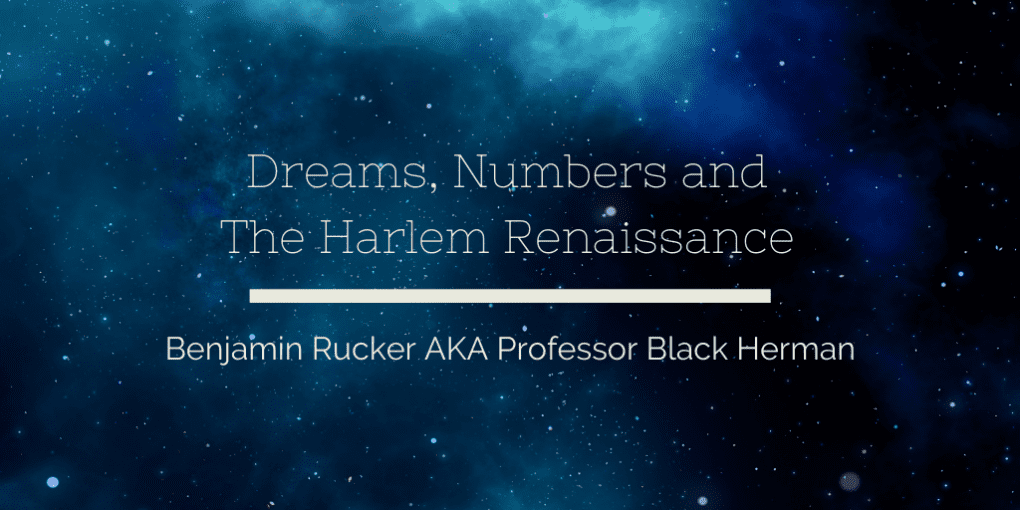

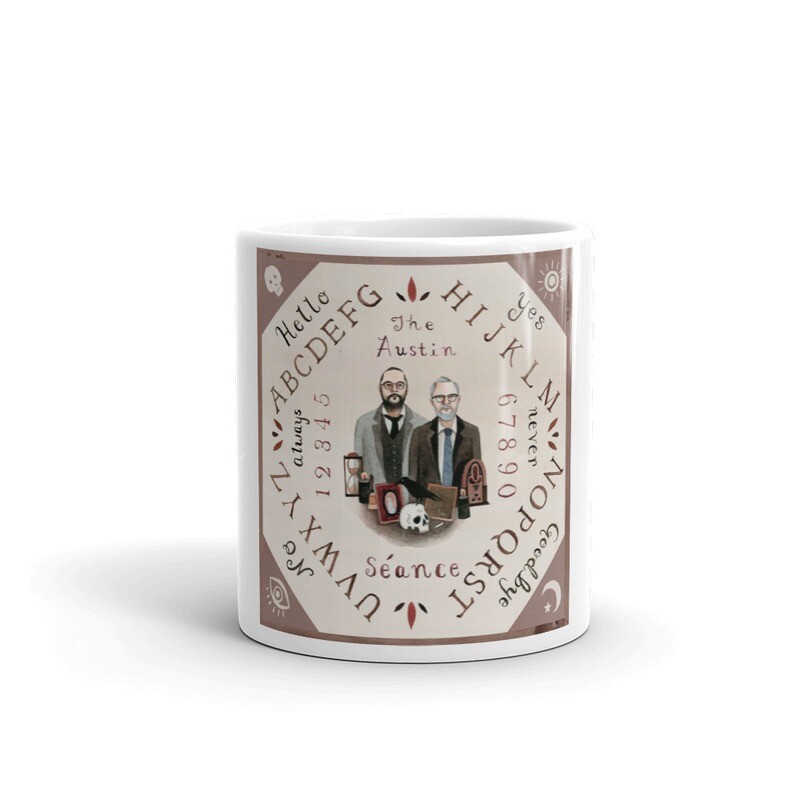
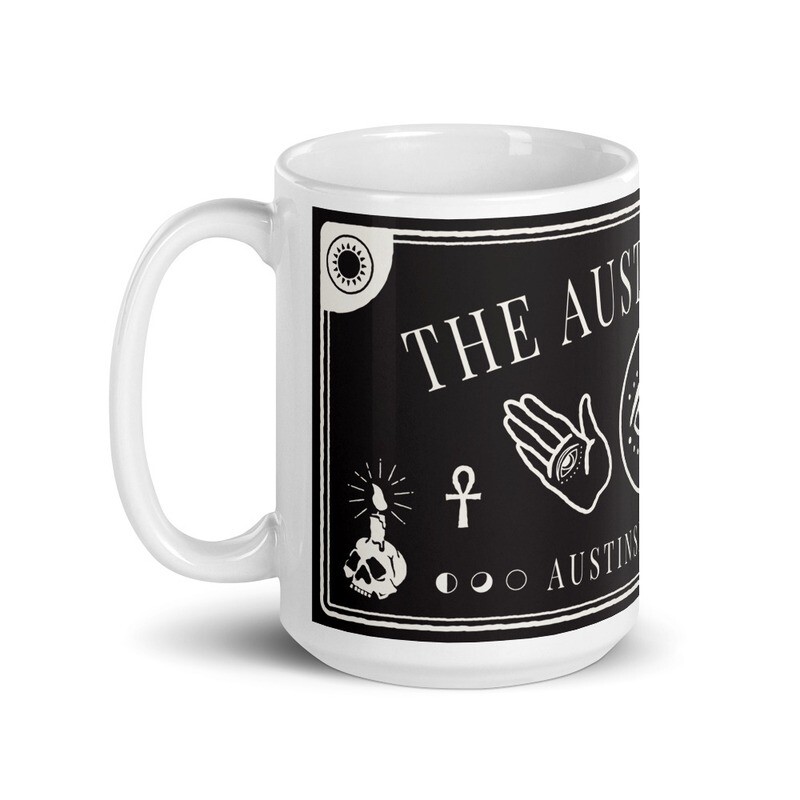
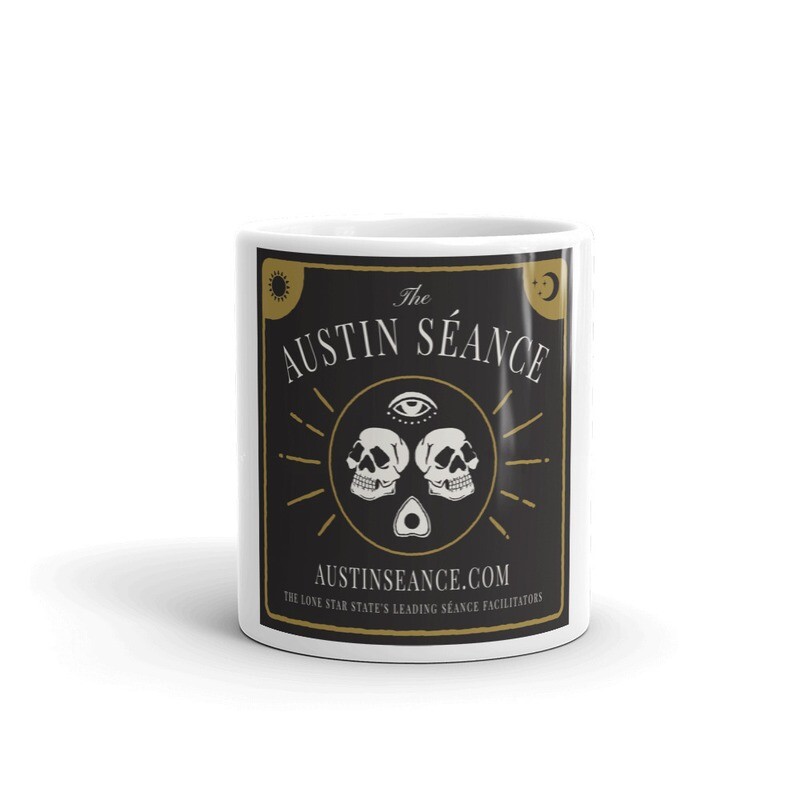
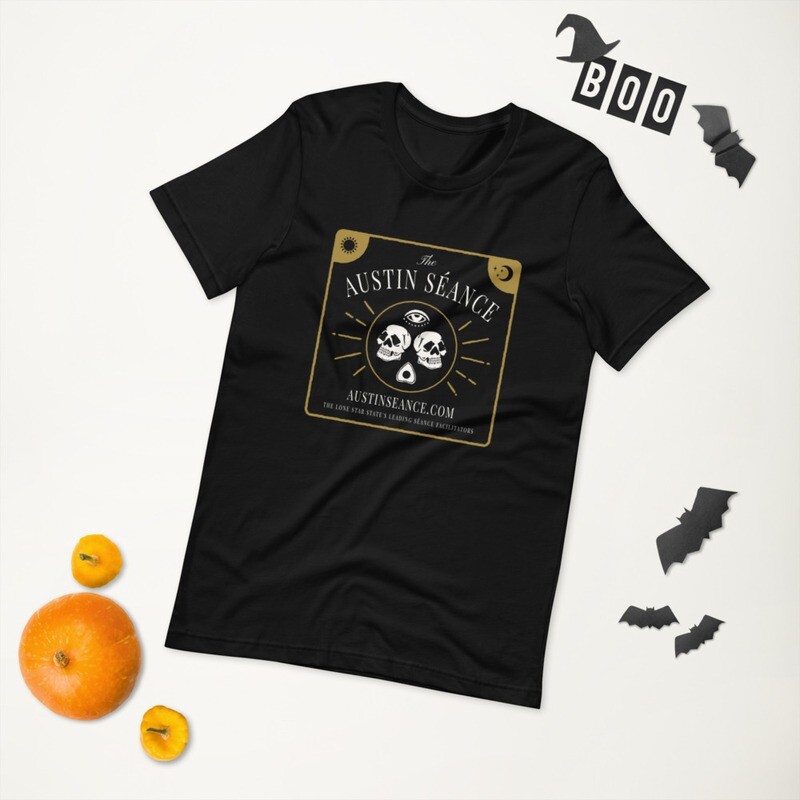
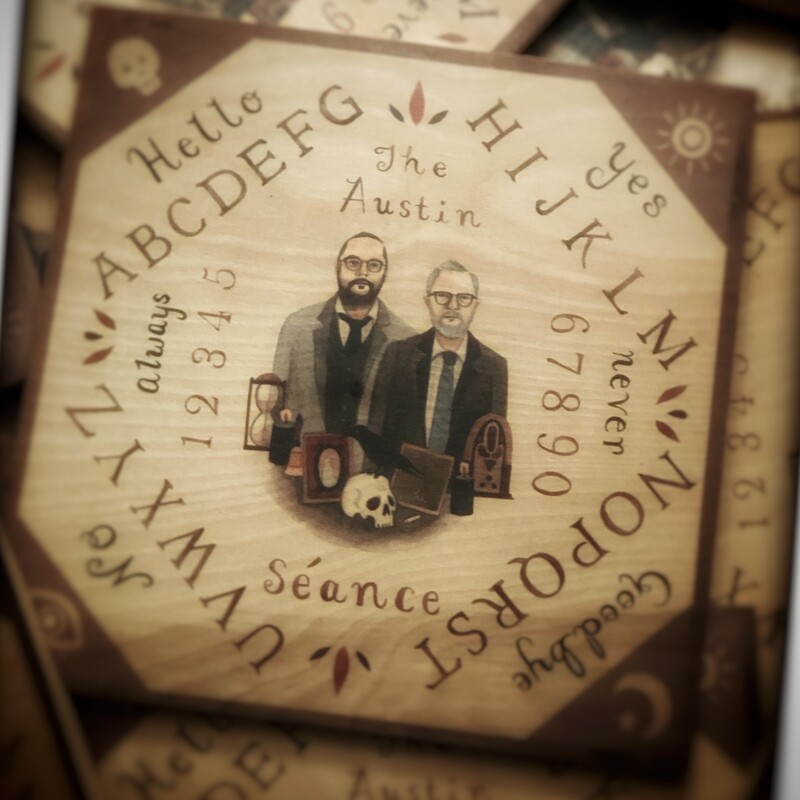


Happy 2019! So enjoyed the June KOOP benefit at the Vortex! Look forward to your upcoming events to be sure!